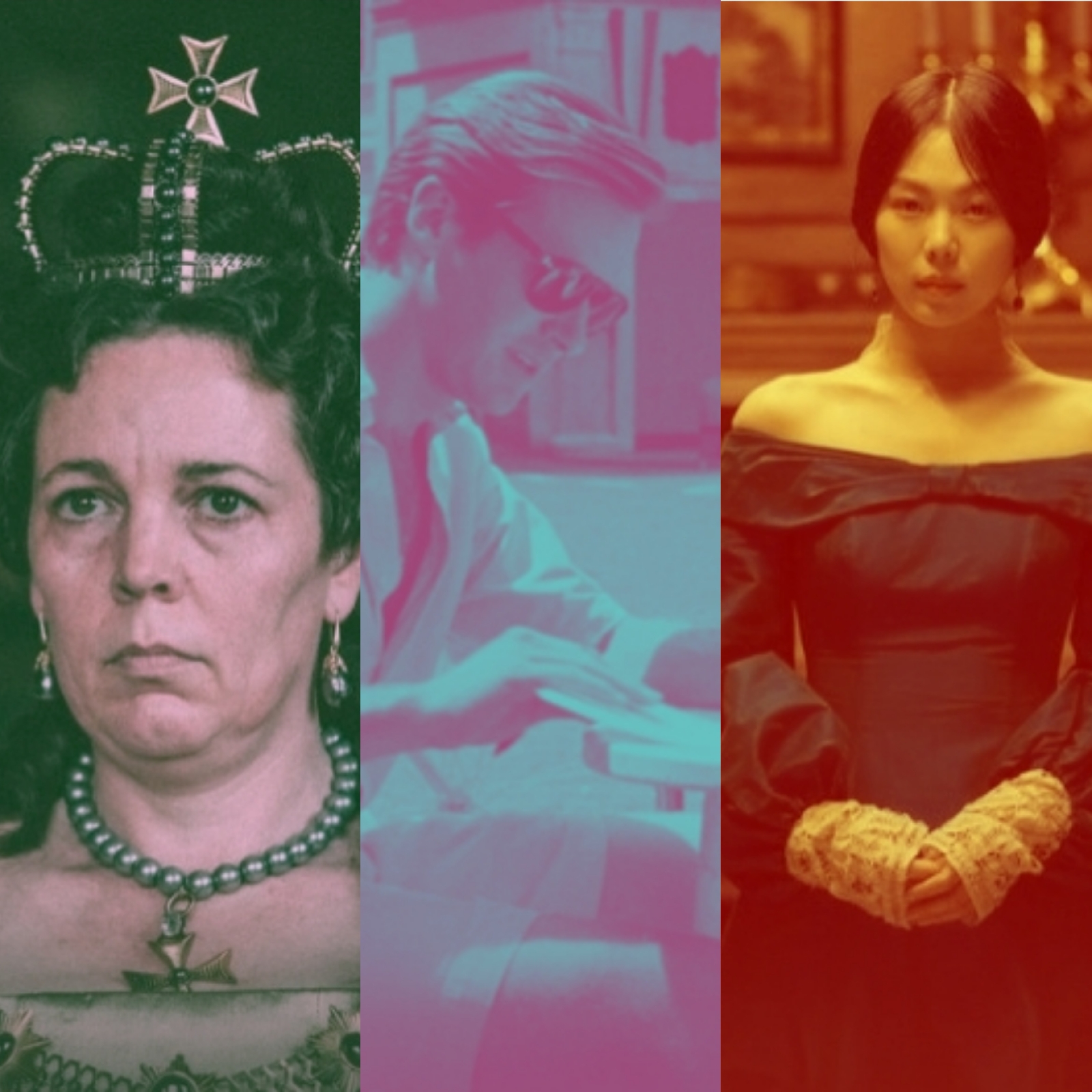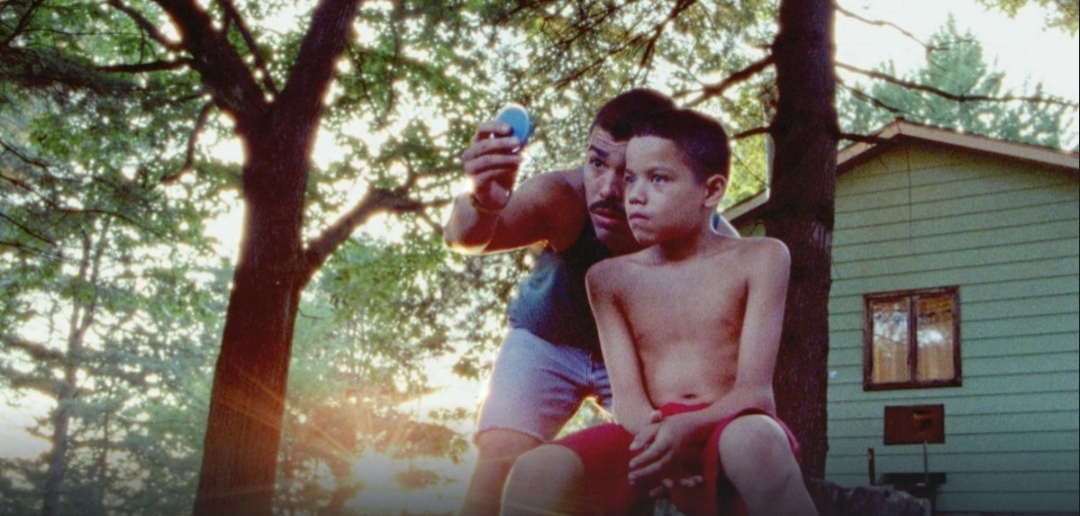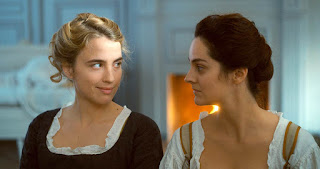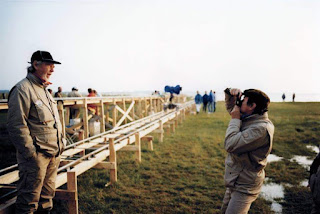The Best LGBTQ+ Films of The Last Decade
What a strange time to release a list about the best LGBTQ+ films from the last decade! June is gradually coming to a close with showers. But when the skies are done with pouring their tears in sheer grief of their inability to kiss the ground, they reward the mankind with a rainbow. A bow that is made of rain, marking the sensitivity of the sky. And this isn't a bow of a specific colour. It doesn't induce the darkness with cooler coloures, neither does it simmer with the warmer ones. This is an array of hues, overtones, undertones. And it's one of the most beautiful things ever.
This is why the Pride, the LGBTQ+ diaphragm of love and sexuality, is marked by a rainbow. This isn't unconventional form of living, it's an attempt to make it as obvious as witnessing a rainbow in a clear sky. The Pride movements across the world are one of the purest forms of struggling for your liberty existent in societies contemporary or not. It's blend with art becomes all the more important because art is a universal medium, and when blended with a movement marrying the sexual and the politically to intricately spin it with a yarn of an enclosed familiarity, becomes all the more personal to the viewers not from this community. I making this list, serve as an example. As someone not from the community, my approach might be distant. I don't know what messaging holds true to the movement and what doesn't, what I know is that as long as rainbows keep forming up above, Pride and the diversity of sexuality persist. A month isn't enough to encompass it all.
Having said that, this is still a list in making. Yes, even as I've given more than a week of mine to work on it. Stephen Cone's Princess Cyd, Wanuri Kahiu's Rafiki, Greg Berlanti's Love Simon and Sean Baker's Tangerine are some of the films that I look forward to watching. Abdellatif Kechiche's Blue Is The Warmest Colour quite rightly does NOT find a place in this list because of the sheer problematic behaviour its two leading actresses had to endure. Among films from 2020, Josephine Decker's Shirley, Eliza Seligman's Shiva Baby, and Miranda July's Kajillionaire find a mention.
The list doesn't singularly focus on films oriented around themes of queerness. It attempts at embracing those films with effectually written characters of the community. One director, one film format is chosen so that there is coherence. Now you know why Celine Sciamma's Tomboy (2011), Xavier Dolan's Mommy (2014) and Sebastian Lelio's Disobedience (2017) don't find a place in the list despite being almost as good as the names here.
Side Note:- The ranking here is based on both efficiency as a film and how powerfully representative it actually is of the Pride. So if your favourite film is ranked a little too low (for example, this last position), you know.
23. Kapoor & Sons- Since 1921 (2016)
In one of the best Indian films from the last decade, Dharma Productions made a progressive move by allowing an arc of storytelling which is so unlike its perfectly trimmed mainstream methodology. Shakun Batra's Kapoor & Sons isn't exactly a queer drama. Atleast not for the major part of its running time. It's a genuinely warm bouquet of freshly bloomed flowers neatly spread into the garden cultivated with love. Except, these flowers are some lovingly warm moments and the garden is a dysfunctional family. Kapoors are not jostling with each other for attention, they are just having a hard time being.
In the sweet dollop of Bollywood poignance, Pakistani star Fawad Khan is Rahul Kapoor, the preferred child. And why not? This is a man who has a plan, has better looks and better manners. But when the cards start falling and the stakes get all the more high, there's no stopping to hardships. Hardships of coming across as what you were pretending to not be. No one thought that you were. And it isn't for shock value. Batra keeps it as minimal and light on feet as he can. That heightens the pain in a way you won't expect.
22. God's Own Country (2017)
However, the poetry lies in the performances. We get Josh O'Connor milking his most dazzlingly sensuous hour in all cinema. Traversing boundaries of a gold-hearted Romanian with oodles of melodrama up his sleeves, is the cute magician Alec Secareanu. Smartly subverting the queer harmony on its head, and looking elegant while doing so, God's Own Country gets everything right and gets an exceptionally original identity. Brokeback Mountains comparisons are inevitable with the somberness and exquisiteness of the perspective, but it's best to embrace it as an original bursting with flavours inherently personal.
21. Lady Bird (2017)
Danny O'Neill is a tricky character. But the young lad truly becomes complete because there's a trickier actor playing him. Lucas Hedges does nothing that suggests he'd be a gay boy trying to fit in for a swooning time with Lady Bird. However, the warmth of friendship and acceptance, and shock ingrained to the startling discovery make him beautifully predictable. So while this being as a part of our discussion might be a bit of a stretch in itself, but it kicks in an important conversation.
20. 120 BPM (2017)
19. Aligarh (2016)
Hansal Mehta is one of the finest filmmakers of Bollywood right now. His gaze has always been transparent and the treatment journalistic in spirit, be it an economic scam of the nineties or the story of a lawyer who fought against Islamophobia within his own limitations. The choice of stories to tell become inherently important to the dialogue the film wishes to initiate. As such, his character study of Professor Ramchandra Siras in Aligarh is his most deeply controlled.
The focus isn't on the romanticism of sexuality. Mehta doesn't even throw much of a light on Siras's sexuality as the camera follows him throughout. This is a very humane tale of resisting labels. To be called a certain way, in the barriers of what's L, G, B, T, Q is not something Siras wants. The Marathi professor wants to live in a rhythm. He desires to keep extracting poetry from the interludes of the texts. To weave stanzas of humanity with delicacy of any poet living in the world with dignity. What makes him and the film all the more refreshing is the progressive stance to be a catalyst for initiating the conversation around the freedom to love on a government level. Also, it consists of Manoj Bajpayee's single-greatest performance. Which goes a long way to say for an actor who is good in any film he's in.
18. Close-Knit (2018)
What happens when the coldness in the atmopshere tends to attempt an indifference with human beings. What happens when the coldness of human beings transforms into sheer neglect? All the neglect and hate that fills little worlds like these, still make plenty of space for hope to play out with its own flow. This cycle of feeling is perennial- when the leaves wither, we call them sadness, and when they bloom, our souls can't be happier. These are simplistic, overly familiar ideas but their relevance is undeniable. And these ideas turn into beautiful, charming flowers dropping from a modest floral tree due to the effect of Autumn with Japanese director Naoko Ogigami's Close Knit.
What makes Close Knit special is it's ability to stick to the conventions of real life rather than recreating those set by the ones made by unconventional cinema. It's little and tender touches resemble those crafted by Hirokazu Koreeda in his more accessible films. The acting is ferociously excellent- the eleven-year-old Tomo has been played movingly and quite confidently by Rinka Kakihara, but the one that hits closer home is the vibrant energy of Toma Ikuta as Rinko, the film's trans character of focus. Her stimulative movement reminded me of Riddhi Sen from Nagarkirtan. The writing and its terrific dedication towards depicting acceptance, sexuality and homophobia is lived in an existential, deeply experienced reality. It did feel a little too long at a running time of two hours, but the satisfaction in the end made it totally worthy.
17. House of Hummingbird (2019)
What compelled me though, was the distinctly warm queer energy. The quietness and hushed tone of Eunhee's bisexuality, and her relationship with her instructor and girlfriends, has an energy one can't help but embrace as a viewer. In a way more empathetic than subtle, it really changes the perceptions and labelling of a queer drama with a cyclical, nuanced suggestiveness. Because, no process of human life is as queer as growing up in two digits and coming-of-age.
16. Raw (2016)
15. Breathe (2014)
14. Nagarkirtan (2019)
The most fascinating bit of being an LGBTQ+ film is that you get to divulge into every form of love with the complexity you desire to deliver with. As a filmmaker, you can choose whether your love blooms or withers. With Nagarkirtan (A ballad from the streets), filmmaker Kaushik Ganguly chooses to take the forbidden. Eloping into affection and intimacy, thus, gets a touch that's deeply affecting and arrestingly powerful at the same time.
Puti is a woman trapped in a man's body, seeking gentrification and transmission from the bottom of her heart. Madhu delivers food for a restaurant by the day and food for soul by the night (he is a lute player for a devotional musical group of a Hindu sect of worship, ie the Vaishnavas). When the two distinct tunes touch each other, a magic binds them into the subtlety of profound indifference. This is as unconventional as the love of Krishna and Radha. Because in ancient texts, Radha was claimed to be the aunt of Krishna. In mythology, the love that is a body of reverence, gets wrapped by the curtains of inherent hate and prejudice in societ's foiled progressive wrap. This, indeed, is the story of love- love that hangs itself and dies several deaths in the end.
13. Thelma (2017)
Seizures and inexplicable abilities are the mysterious core of Thelma, 2017's acclaimed Norwegian thriller. Exquisitely shot by Chernobyl cinematographer Jakob Ihre and brilliantly performed by Eili Harboe as the titular character, this offering from Joachim Trier (whose 2011 film Oslo, August 31st is widely regarded as one of the finest foreign language films of the last decade) is explicitly visual in its unsettling value. Also, its understanding of female gaze, same-sex affection and other things that constitute a woman-oriented drama is deeply subtle and fuelled by restraint.
12. Weekend (2011)
11. A Fantastic Woman (2016)
But the gaze is surprisingly a lot more fitting and perceptive. Lelio makes death a thriller-like catalyst for subverting Marina's life and stripping the beauty of gender-positivity that the first few minutes displayed. It's never particularly harrowing. The neons of Chilean bars, the green of the trees, the glittery outfits and Benjamín Echazarreta's theatrical experience-worthy cinematography only add to the film's richly beautiful passages. However, the sense of closure that the film provides to Manila in the end made me forgive most of the complaint I had. Grief builds a momentum, resists vocality in the open but morphs into inexplicably moving corner which leaves you perplexed and satisfied at the same time.
The rest of it is brushed off by the fantastic performance by Daniela Vega, which ought to be one of the finest of the last decade. Usually, in mainstream films about people unconventional, a radical viewer tends to question the conventions which are pretty familiar to them from time immemorial. In A Fantastic Woman though, we find the conventional society going crazy and Marina appearing as the only human in the frame.
10. Pariah (2011)
Coming-of-age is my favourite genre not just because it inspires terrific artistic-flair and impassioned observance when it comes to filmmaking. It's because coming-of-age, as a process, is an art house film in itself. It has an impassioned glory which gets all the more deft when there are conflicts. The process of figuring stuff out is dazzling with neons and gutted into darkness. This is closest blurring of lines between lives inside and outside screens. Dee Rees adapts her short film into a feature, which produces what might be one of the finest feature debuts from the last decade.
As the Brooklyn drama traverses magically through Alike's life, her differences with her parents and the turbulences of her lesbian identity, the camera follows and becomes one with her struggles. We don't just feel for her, we feel her. The love, the friendship, the hate, the misogynistic sexism and binding it all in a neon book of poetry written with terse intensity by cinematography of Bradford Young and editing by Mako Kamitsuna, Pariah is a gloriously layered study of teenage angst and what it does, not to the others around, but to you, the one who is experiencing it. The sexual expression and the way it deals with it becomes all the more moving. Rees is never desperate to strain the glow and the flow of her anger by dropping the fire of racism. She's completely captivated by Lee's bleak confusion.
By women, for women and with women, Pariah is subversive, sensuous feminism. Led by a spectacular performance from Adespero Oduye it becomes all the more personal.
9. Call Me By Your Name (2017)
Using the 1983 timeline and homeland Italian settings with complete fervour, filmmaker Luca Guadagnino's third entry to his desire trilogy finds him exploring what would be called 'unconventional' romance, in a delicately conventional fashion. Peeling off the layers of intimacy in a way so personal that it feels like one's own, he constructs a comforting place in your heart and manages to shatter it successfully. Powered by the innate sensitivity of Timothee Chalamet and composure of Arnie Hammer, Call Me By Your Name is so spectacular that one would feel like his own sexuality is taking a new leaf.
8. The Handmaiden (2016)
It takes a true auteur to take an authorial signature and transport it to another in all preciseness. However, to wipe the artistic language of that signature and transform into something entirely original is something which lacks possibility, which might be due to my limitations as an admirer of art. Either way, Park Chan-Wook's revision on Sarah Jane-Waters' Victorian novella The Fingersmith and its rebuilding in the Korea of the 1930s, The Handmaiden is deceptively original and terrifically stylish. The substantial conviction of Park knows no boundaries as he tears off all the checklists associated with parables of folk storytelling, sexuality and indeed, a feminist thriller. Every frame of the film is a painting, and some kind of a ballad that unsettles even the fearless with constant disruption.
However, the most terrific of all the things that the film displaces is its slyly imaginative spin on the same-sex romance. When it gradually starts to unfold, there's nothing more invigorating and delicate than it. However, when the dark comedic fold of this relationship unravels, you go back and think where you missed the strange flavour of this romance. Lady Hideko's glory and Sook-Hee's pride come together to produce some of the most intense chemistry in cinema. Kim Tae-Ri was a pleasure to behold, a revelation I would say, but the true artistry of acting comes to play with the smart casting of Kim Min-Hee. The soft minimalism of a Hong Sang-Soo heroine morphs into the horrific, thrilling elegance of an aristocratic lady before you know it.
7. Carol (2015)
You construct it through ingenious casting. Rooney Mara gives herself, but only like truly budding stars do, to the gloriously bewitching Cate Blanchett (whose beauty is besottingly Indian, I can't help but reiterate myself). You construct it through a talky nature, where the talk is seamlessly powerful and contemporary. And then there's Edward Lachman's compelling glaze of a camerawork, one of the best, and the most aesthetic glossy achievements in the history of English cinema (A feat that would be repeated five years later by Chris Blauvelt in First Cow). You construct it by actually investing yourself emotionally to the lingering, impassioned sensation, where you are the only thing warm around the numerous cold overcoats.
I feel Carol is a thriller. It's an epilogue to an unsettlingly detailed obsession. For the time being, it's gloriously rich romance.
6. Pain and Glory (2019)
Pedro Almodovar's Pain and Glory is a richly coloured, textured character study that expresses great pain and greater glory by flirting through details and derailing every sense of emotional belonging and craft into a sharp, immaculate meta-narrative. Constructing a focused reversion of Salvador's life, Pedro creates a bangle of mesmerizing meditation and slowly and steadily intoxicates himself to drown into indifference with the film's world. The architecture of emotions is achingly precise but what stays with you is the magnificent portraiture of lively melodrama, richly fluid and devoid of an added weight of sentimentality, to call Pain and Glory intelligent would be a profound mistake.
Instead, it would be more intrinsically fulfilling to call it an artistic reflection on the artist's block a craftsman goes through as a first-hand experience. The gay drama is a corner that pumps bursting, atmospheric shades of brightness which can't be more layered and subtle, but even that jumps off the screen because the film is floating in a river, in the waters of which Pedro has mixed something. A potion so necromantic that drowning into it becomes life's only purpose for the next two hours. That ending? one of the finest I've ever seen.
5. We, The Animals (2018)
It's but a small, trivially charming scene in a film propelled by extraordinary movement and exceptional technique. Following Jonah and his two slightly older brothers as they grow up in a loving but too turbulent household into the wilds, this film sums up the distances fashioned by the process of coming-of-age in ways more moving and relatable than expected. It's a queer drama that refreshingly deviates focus and shifts it on the adolescence of the three children. Mom might want us to grow nine-plus something, but the truth still remains in two digits. It grows, evolves and soars into the sky. But it's only upto us whether we face it by clutching our jackets in the face of a storm or let the winds take it, facing it with a naked smile.
I haven't seen such a minimal and observational portrait of masculinity and its captivating relationship with emotion. Evan Rosado (who was last seen in a shamelessly small role in Todd Philips' Joker) and Raul Castillo, playing Jonah and his Papa respectively, play it out so well that they feel very connected to each other, even more than Alan S. Kim and Steven Yeun of Minari, a film with which it shares some really evident similarities with. But in terms of imagination and craft, We The Animals is far more of a superior experience. A sublime, believable one that isn't hard to give into.
4. Portrait of a Lady On Fire (2019)
But as much as I admired Sciamma's utter resilience, I can't help but remark that this is a Claire Mathon masterpiece. Every frame is constructed as a painting. However, it's not an empty art-work worth staring. Each of these frames has a degree of nuance that doesn't seem earthly at all. The protagonists get inspired by the settings they're in. This poetry of pastels is what makes their film one of the finest to come out of this decade.
3. Moonlight (2016)
Quiet yet quietening, there's nothing much one can say about it. The distance of mine when it comes to appreciating the film is actually a lot more warm and personal in my heart. It left an unfilled gap when it closed, this magnificently. And then, I had to watch something lighter. Or I would have really been unwell. Chiron's sweeping, glorious opera shall do different things to different perceptions and different people. See for yourself, which character, which dialogue, which way of lighting, has you!
2. The Favourite (2018)
Greek weird wave's prominent master Yorgos Lanthimos entered the Hollywood panorama and grabbed period drama riches by the hair. The results are intriguingly seamless. The folds are as twisted as they are royal and the initial stylistical movements morph into gleefully intelligent foreign drama pleasures. The screenplay is meticulous- the way it begins by reveling into its own gold mines and then turning into a profoundly human examination of crushing love and its further troubled limitations, is distinctively queer at its own.
I would have been extremely happy if Lanthimos really staged a revisionist narrative which is arrogantly radical. It will very obviously be flawed to a degree, but the deftness of Olivia Coleman's eyes, Emma Stone's twisted smile and Rachel Weisz's brooding physicality would have been the flawless foil. However, he has to tie us to a swiftly running horse, loosen the shackles of laces in our clothes and put a rabbit-skin headgear on our heads as if it were the Kohinoor. This is unfair as a cinematic experience. But so morbidly enjoyable, I think it's literally the favourite of mine from all in the list.
1. Laurence, Anyways (2012)
In his early twenties(!) Dolan captures the hold of his material and expands the positives in a way which is simply unbelievable. Melvil Poupaud is the star of the show as the leading lad Laurence Alia, but one can't say that Suzanne Clement or Nathalie Bay are any where below the page. The writing of scenes exquisitely laden with conflicts is the strongest but then, I can't say that it's anywhere lesser when it comes to the other, more playful sequences. The queer zeal is not obvious at all as a whole, but where it becomes slightly apparent, it's beautiful nevertheless. The production design, cinematography and sound design are artfully rich in thematically surreal moments but the thematic inventiveness is sprinkled throughout the film if we go by that.
However, a breakneck point finally arrived at the last nineteen minute stretch. It was starting because I was asking myself whether this summed up the whole of the narrative as a gimmick? And whether the tone was anywhere as compelling as the rest of the film? But then, I repeated it on the loop. Also, I realized that this is an assured step at coming out of a shell even if you were really out of it right from the beginning. Laurence, Anyways is one of the best films of the last decade.



























Comments
Post a Comment